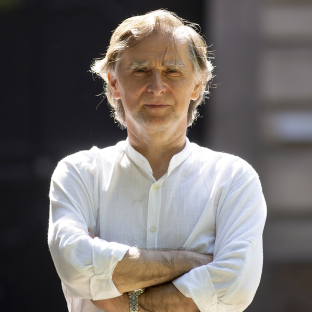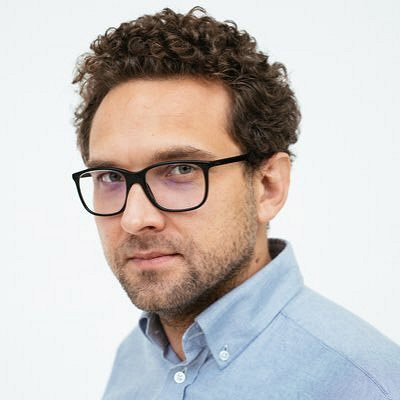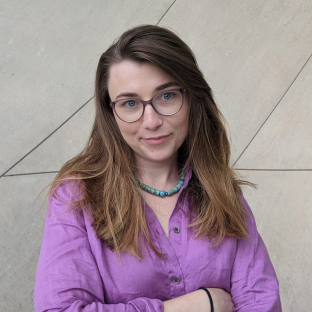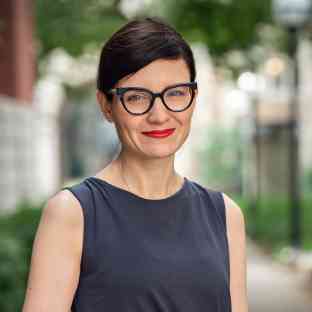The Shtetl: Jewish Community in Transition
Tuition: FREE
Registration is closed. Sign up for YIVO's email list to receive announcements of upcoming classes.
This is a live, online course held weekly on Zoom. Students will receive a Zoom link after registering for the course here on the YIVO website. This course will be conducted in English.
The shtetl was one of the principal arenas in which Jewish life unfolded in Eastern Europe. In the collective imaginary of American Jewry, the shtetl is often an unchanging, and sometimes idyllic, site of Jewish traditional life in isolation from non-Jews. In reality, however, the historical shtetl went through many transformations and experienced many ideological upheavals. This mini-course will explore four major arenas where changes occurred—spirituality, politics, gender, and culture—dispelling the myth of the shtetl as a stagnant and isolated Jewish community.
The mini-course is organized by the YIVO Institute for Jewish Research and the POLIN Museum of the History of Polish Jews. The course accompanies the new temporary exhibition at the POLIN Museum “(post)JEWISH… Shtetl Opatów Through the Eyes of Mayer Kirshenblatt.” The exhibition juxtaposes postwar memories of prewar Jewish life in Polish Opatów, as recorded in words and paintings by a self-taught artist—Mayer Kirshenblatt—with the town in the postwar period.
To be up-to-date with POLIN Museum's activities, we encourage you to sign up for the POLIN's newsletter here.

Schedule
SESSION 1:
September 8, 2024 | 11:00am – 12:00pm ET
Spirits in the Shtetl: The Religious Life of East European Jews
Instructor: Marcin Wodziński
What were the beliefs and everyday practices of East European Jews? How did they differ from the teachings of the rabbis? And what, if anything, made the spiritual life of small-town Jews distinct? This session will explore the religious life in these small-town communities and how it changed with the spread of Hasidism and the secular movements permeating shtetls in the 19th and 20th centuries.

Marcin Wodziński is a social, cultural and literary historian at the Taube Department of Jewish Studies, University of Wroclaw, Silesia (Poland). He is the author of the Historical Atlas of Hasidism (Oxford University Press, 2018), which won the 2018 National Jewish Book Award for Scholarship.
SESSION 2:
September 15, 2024 | 11:00am – 12:00pm ET
Who Were the Shtetl Radicals?
Instructor: Michał Trębacz
In the interwar shtetl, various political ideologies clashed as people debated about the future of the Jewish community in Poland, including the fate of Jewish language and culture. The shtetl was a hub of intense discussions and disputes as people considered different political options. This session will explore the popularity of radical ideas and the ways they were shaped by economic and political circumstances. How did radical ideas shape the Jewish street? How did Polish groups react to political activity in the shtetl? Did the shtetl facilitate political contact between the Polish and Jewish worlds, or did the two communities remain disconnected?

Michał Trębacz is the acting Director of the Jewish Historical Institute in Warsaw, Poland and an Associate Professor at the Center for the Jewish Studies University of Łódź. Between 2017 and 2024, he served as the Head of the Research Department at the POLIN Museum of the History of Polish Jews. He specializes in 20th-century socio-political history with a particular focus on Jewish history and biographical studies.
SESSION 3:
September 22, 2024 | 11:00am – 12:00pm ET
Women as Indicators and Forces of Change in the Shtetl
Instructor: Aleksandra Jakubczak
Who were the women of the shtetl? How did literature, education, and novel ideas about sexuality and family from both non-Jewish and secular Jewish sources spread throughout the shtetls and change women’s position, their self-perception, and gender roles? This session will explore how Jewish women in small towns were subject to broader processes affecting women in Eastern Europe and around the world. Students will gain a deeper understanding of who the women of the shtetl were up until the eve of the Holocaust.

Aleksandra Jakubczak is a historian who specializes in the social and economic history of East European Jewry in the 19th and 20th centuries, focusing on women and gender. She received her PhD from Columbia University and, in 2024, was a postdoctoral fellow at Harvard University. Currently, she is the Chief Historian at the POLIN Museum of the History of Polish Jews and a research fellow at the Historical Institute of the Polish Academy of Sciences.
SESSION 4:
September 29, 2024 | 11:00am – 12:00pm ET
The Shtetl on the Move: Modernization, Nostalgia, and Cultural Practices in the Late 19th and 20th Centuries
Instructor: Karolina Szymaniak
How did modern cultural practices permeate and change the shtetl community? How did the shtetl become a site for the development of modern Jewish culture? In this session, we will examine the shtetl during the era of modernization through the lens of culture. We will discuss literature, theatre, the press, and the ways in which the Jewish intelligentsia built ties with their audiences during this transformative period in East European Jewish history.

Karolina Szymaniak is an assistant professor at the University of Wroclaw and a research fellow at the Jewish Historical Institute in Warsaw. Her research interests range across modern Yiddish literature, Polish-Jewish cultural relations, and translation studies. Her recent publications include Montages: Debora Vogel and the New Legend of the City and My Wild Goat: Anthology of Women Yiddish Poets (in Polish).
This course is organized within the Global Education Outreach program, supported by Taube Philanthropies, the William K. Bowes, Jr. Foundation, and the Association of the Jewish Historical Institute of Poland. Public task financed by the Ministry of Foreign Affairs of the Republic of Poland within the grant competition “Public Diplomacy 2024.”






